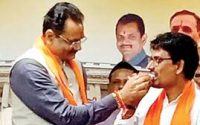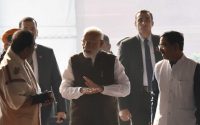$100 Website Offer
Get your personal website + domain for just $100.
Limited Time Offer!
Claim Your Website NowWe must respect all religions
Source:-https://indicanews.com
Justice Markandey Katju-
I have often been asked which judgment of mine I regard the most important, and I usually refer to Hinsa Virodhak Sangh vs Mirzapur Moti Koresh Jamaat ( see online ) which I delivered in the Supreme Court in 2008. There was a lot of criticism of this judgment, and till this day I myself sometimes have doubt whether my judgment was correct.
The facts of the case were that in the city of Ahmedabad in Gujarat there is a municipal slaughterhouse that used to be closed every year during the 9-day Paryushan festival of the Jain community.
In all cities in India, there are municipal laws that prescribe that slaughtering of animals like goats and buffaloes for sale of their meat can only be done in the municipal slaughterhouse and not at one’s home or elsewhere. This restriction was for maintaining hygiene and sanitation.
The most important festival of the Jain community, which is a small religious community in India, is Paryushan, which is for 9 days during which Jains spend their time in prayers etc. For decades the Ahmedabad Municipality would close its slaughterhouse during the Paryushan period, out of respect for Jains who are strict vegetarians, and this meant that citizens of Ahmedabad could not get meat to eat during this period.
This restriction was challenged in the Gujarat High Court by two sets of people, the non-vegetarians who complained that their freedom to eat what they wanted was violated as the restriction offended Article 14 ( the right to equality ) in the Constitution, and the butchers of Ahmedabad who complained that their right to do business mentioned in Article 19(1)(g) was violated by this restriction.
Interestingly enough, the petition was allowed by a Gujarat High Court Judge who was himself a Jain and a strict vegetarian, and who held the restriction unconstitutional, but that judgment was reversed in appeal to the Supreme Court by me, a Kashmiri Pandit and a non-vegetarian.
I was then sitting in a bench of the Supreme Court with a senior colleague, Justice HK Sema, a Naga, who told me to write the judgment.
We had reserved judgment after hearing counsels for both parties (I remember Mr Soli Sorabjee, former Attorney General of India, had appeared for the Jains).
In most cases, I would deliver my judgment in Court immediately after the hearing, as I knew most of the legal principles. However, in a few cases, I would reserve my judgment as I wanted to think over the matter, or was not sure what the correct judgment should be. This was one of such few cases, and I remember for weeks I kept thinking over the matter but could not make up my mind.
At first, I was inclined to dismiss the appeal and uphold the judgment of the High Court. After all, why should non-vegetarians be compelled to become vegetarians? There should be freedom to eat what one wants.
However, ultimately, I allowed the appeal and upheld the restriction imposed by the Ahmedabad Municipality. What prevailed in my mind were three cumulative factors:
(1) The restriction was only for a short period of 9 days. All freedoms are subject to reasonable restrictions, and one of the tests to determine whether a restriction was reasonable or not is whether it was excessive. If the Municipal restriction had been for several months it could be termed as excessive, but here it was only for 9 days.
(2) This restriction was not a new one, but it had been going on in Ahmedabad for decades.
(3) In Western India like Rajasthan, Gujarat, Western Madhya Pradesh etc there is a large Jain community. Jains are strict vegetarians, and out of respect for their sentiments, non-vegetarians can also become vegetarians for 9 days.
It was the cumulative effect of all these 3 factors which made me allow the appeal, not just one factor.
As I said above, I have often been criticized for this judgment, and I myself still have some doubts about its correctness. Why should non-vegetarians be compelled to become vegetarians for even 9 days only to cater to the sentiments of a particular community?
However, what ultimately prevailed in my mind, and what I mentioned in my judgment ( referring to the great Mughal Emperor Akbar, Urdu poet Firaq Gorakhpuri, Tamil poet Subramania Bhartiya, Shantiparva of Mahabharat, etc ) was my strong belief that since India is a country of great diversity we must respect all religions if we wish to hold the country together and proceed on the path of progress



